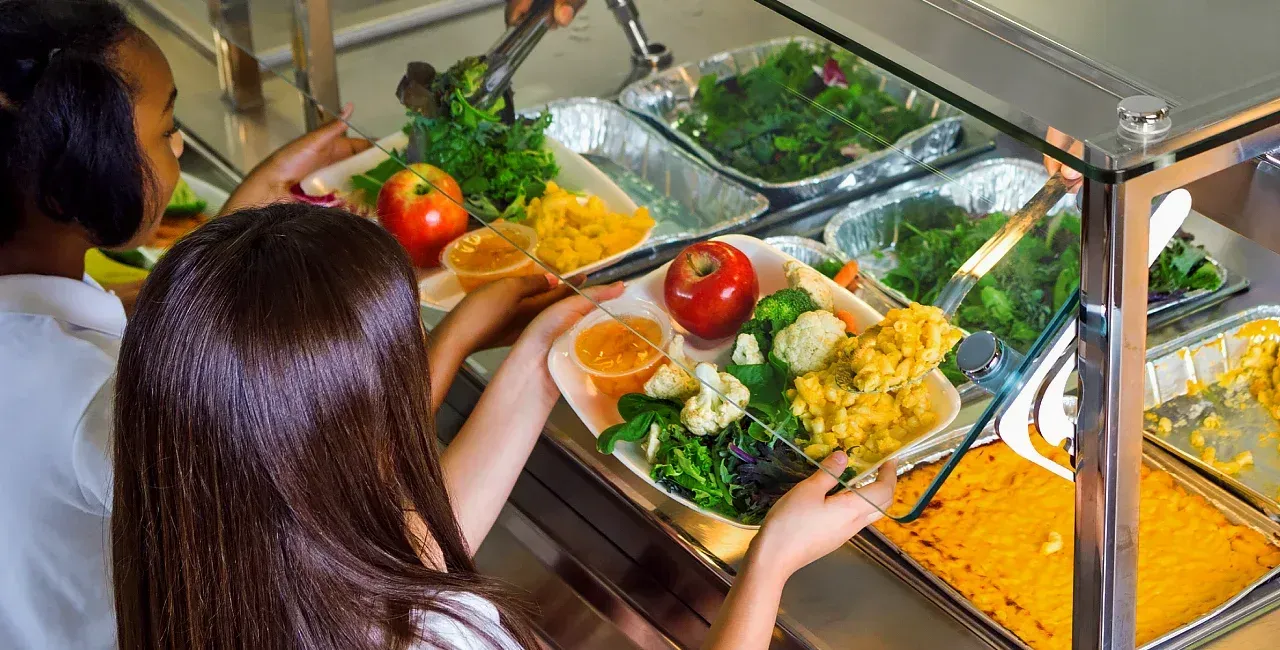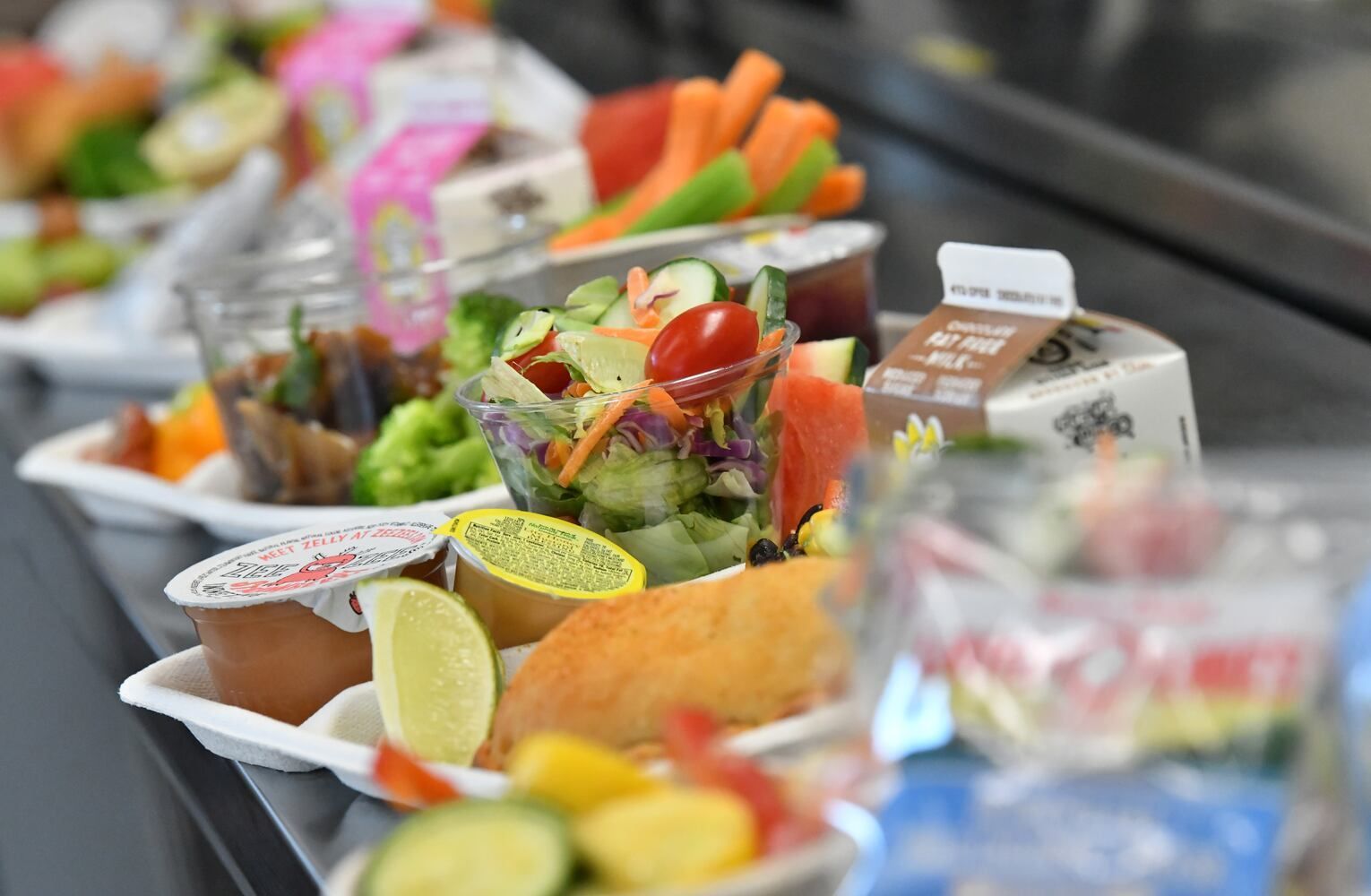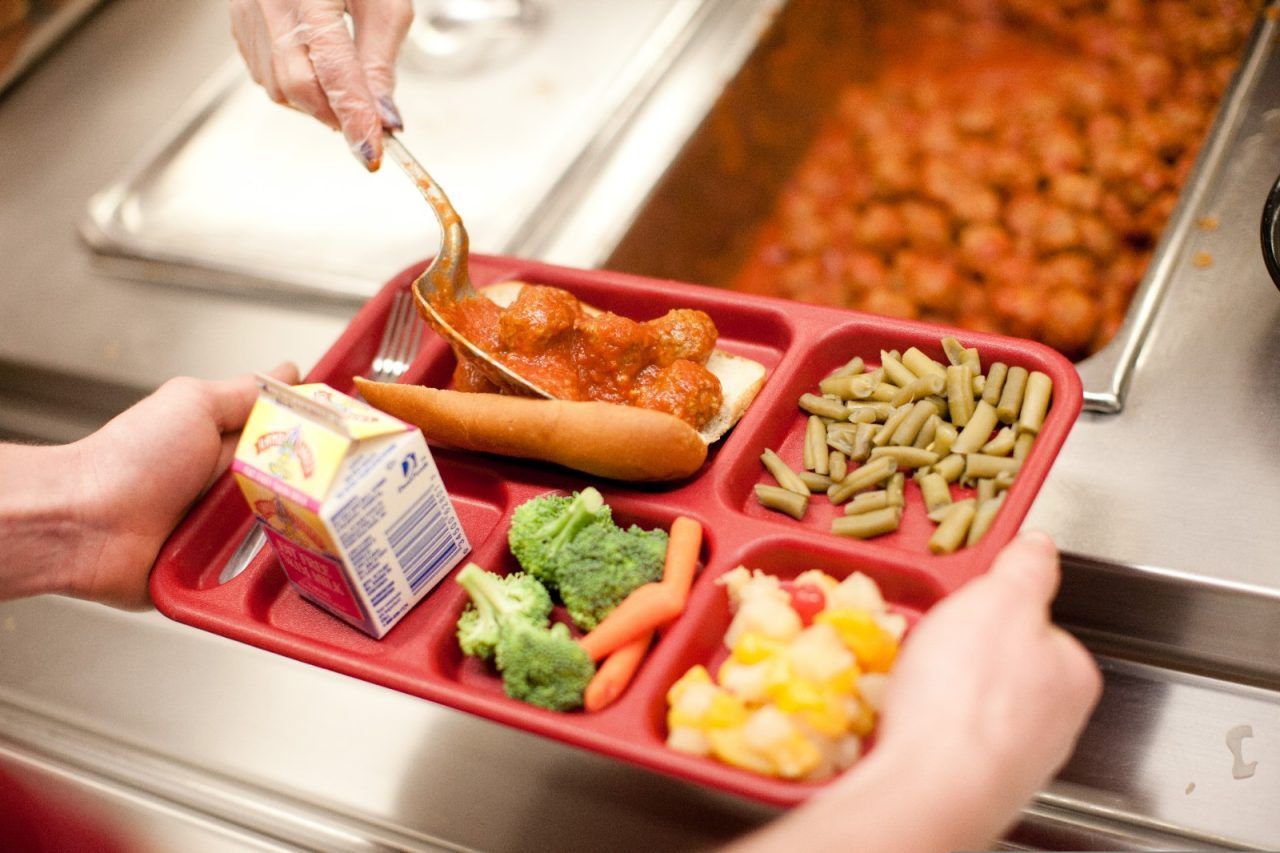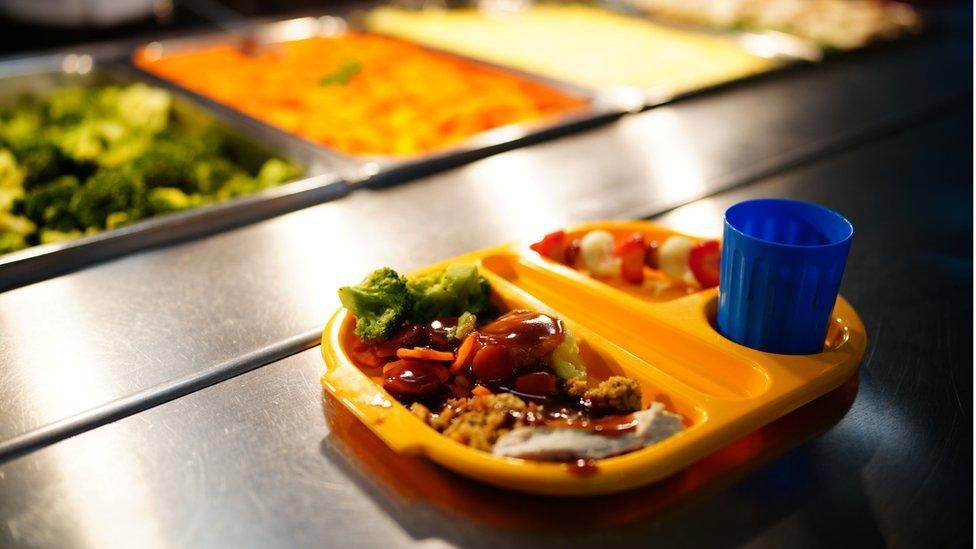1-877-HALAL-WW (+1-877-425-2599)
Embracing Diversity Through Inclusive Halal School Meal Programs
A Comprehensive Guide for School Districts to Address Challenges and Foster Inclusivity

As our nation's schools become increasingly diverse, the importance of inclusive meal programs has never been more evident. Students come from a myriad of cultural backgrounds, each with unique dietary needs and preferences shaped by personal beliefs, religious practices, and health considerations. Providing meals that cater to this diversity is not just about nutrition—it's about fostering an environment where every student feels valued, respected, and included.
Inclusive meal programs play a pivotal role in promoting equity within the educational system. When schools acknowledge and accommodate the dietary restrictions of their students, they send a powerful message of acceptance and understanding. This inclusivity positively impacts students' well-being and academic performance, as children who feel respected are more likely to engage positively in their school environment.
One area of growing importance within inclusive meal planning is the provision of halal food options. Halal, meaning "permissible" in Arabic, refers to foods that meet Islamic dietary laws. For Muslim students—and halal-conscious consumers in general—access to halal meals is a vital aspect of daily life. By embracing halal options, schools can take a significant step toward inclusivity, benefiting not just Muslim students but the entire school community.

Understanding Inclusive Meal Programs
Inclusive meal programs are designed to meet the diverse dietary needs of the student population. These programs go beyond offering standard meal choices by incorporating options that respect various cultural, religious, and health-related dietary restrictions. Accommodating these needs is crucial for several reasons:
- Health and Safety: Providing meals that adhere to dietary restrictions ensures that students with allergies or intolerances can eat safely.
- Cultural Respect: Offering culturally appropriate foods demonstrates respect for students' backgrounds and traditions.
- Promoting Equity: Ensuring all students have access to meals they can enjoy promotes fairness and reduces feelings of exclusion.
Inclusive meal programs might include vegetarian, vegan, gluten-free, kosher, and halal options, among others. By thoughtfully designing these programs, schools create a welcoming environment that acknowledges and celebrates diversity.
The Significance of Halal in School Meals
What Is Halal?
Halal food complies with Islamic dietary laws as outlined in the Quran. These laws specify permissible foods and the methods of preparation. Key aspects include:
- Permissible Ingredients: Certain animals are allowed (e.g., cows, chickens, sheep), while others are prohibited (e.g., pork, carnivorous animals).
- Proper Slaughtering Practices: Animals must be slaughtered in a specific, humane manner, invoking the name of Allah during the process.
- Avoidance of Certain Additives: Ingredients like alcohol and some enzymes or gelatin derived from non-halal sources are not permitted.
Importance for Muslim Students
For Muslim students, consuming halal food is a fundamental aspect of practicing their faith. Access to halal meals at school enables them to participate fully in the meal program without compromising their religious beliefs. It affects their:
- Physical Well-being: Ensuring they receive proper nutrition without violating dietary laws.
- Emotional Well-being: Feeling respected and included enhances self-esteem and school engagement.
- Social Inclusion: Sharing meals with peers without restrictions fosters better social interactions.
Halal Is for Everyone
It's important to recognize that halal food isn't exclusively for Muslims. Halal options are often wholesome and prepared with strict hygiene standards, appealing to a broader audience, including:
- Halal-Conscious Consumers: Individuals who prefer halal food for ethical, health, or quality reasons.
- Culinary Exploration Enthusiasts: Students interested in trying diverse and flavorful dishes from different cultures.
By offering halal meals, schools provide delicious and healthy options that can be enjoyed by all students, promoting inclusivity and broadening culinary experiences.

Cultural and Religious Diversity in School Meal Programs
The cultural and religious diversity among students influences various aspects of school life, particularly in meal programs. To effectively cater to unique dietary requirements, schools must recognize and accommodate a range of dietary needs, including:
- Halal Diets: Complying with Islamic dietary laws for Muslim students.
- Kosher Diets: Meeting Jewish dietary laws for students who observe kosher practices.
- Vegetarian and Vegan Diets: Providing meat-free options for those who choose plant-based diets for health, ethical, or religious reasons.
- Allergen-Free Diets: Offering meals free from common allergens such as nuts, gluten, and dairy to safeguard students with allergies.
By implementing comprehensive strategies that recognize these diverse dietary needs, schools can create a welcoming environment where every student feels valued and supported in their dietary choices.
Challenges in Implementing Halal Meals in Schools
While the benefits of offering halal meals are clear, schools may face several challenges in implementing these options:
Potential Costs
- Ingredient Sourcing: Halal-certified products may come at a higher price due to specialized processing and certification fees.
- Kitchen Modifications: Ensuring that food preparation areas prevent cross-contamination might require changes to kitchen layouts or equipment.
- Staff Training: Additional training for kitchen staff on halal practices can incur costs.
Lack of Awareness or Understanding
- Educational Gaps: Staff may not be familiar with halal requirements, leading to unintentional mistakes.
- Miscommunication: Without proper understanding, schools may struggle to communicate effectively with vendors or the community about halal needs.
Navigating Compliance with Regulations
- Food Safety Standards: Balancing halal practices with local and federal food safety regulations requires careful planning.
- Documentation: Maintaining records for halal certification adds an administrative layer to compliance efforts.
Operational Complexities and Budget Constraints
- Vendor Relationships: Identifying and partnering with reliable halal-certified vendors can be time-consuming.
- Menu Planning: Creating appealing halal meals that meet nutritional guidelines and student tastes requires expertise.
- Cross-Contamination Prevention: Implementing strict protocols to avoid mixing halal and non-halal foods is essential but can complicate kitchen operations.
- Budget Limitations: Allocating funds for higher-cost halal ingredients and necessary staff training within tight school budgets.

Overcoming Challenges: How Halal Watch World Can Help
Recognizing these challenges, Halal Watch World offers comprehensive solutions to assist schools in successfully implementing halal meal programs.
About Halal Watch World
Halal Watch World is an organization dedicated to facilitating the integration of halal options into various institutions, including schools. With nearly 40 years of experience, they aim to promote inclusivity by making halal food accessible to all who desire it.
Our Proven Track Record
NYC Halal Food Pilot Program
In 2018, Halal Watch World partnered with New York City schools to launch the Halal Food Pilot Program, a groundbreaking initiative aimed at providing halal meals to students across the city. This program was developed in response to the increasing demand for culturally appropriate food options in schools with a significant Muslim student population. Through meticulous planning, Halal Watch World assisted in creating compliant menus that adhered to Islamic dietary laws and met USDA nutritional guidelines. The success of this program has led to its expansion, now serving over 43 schools, and has established a national model for inclusive school meal programs.
Halal Food for Correctional Facilities
Halal Watch World has also extended its expertise to correctional facilities across New York State. Since the 1990s, the organization has managed halal food procurement, ensuring that inmates with specific dietary needs receive meals that comply with Islamic dietary laws. This initiative underscores the importance of providing dignity and respect to individuals in correctional settings, acknowledging their cultural and religious requirements.
Pioneering the First Halal Law in Paterson, NJ
In 2000, Halal Watch World played a vital role in crafting and implementing the first halal law in the United States in Paterson, New Jersey. Under the leadership of Imam Mansoor Rafiq Umar, this legislation set a precedent for halal food regulation, establishing standards that ensure the integrity of halal food products. The successful enactment of this law exemplifies Halal Watch World’s commitment to advocacy and policy-making in the realm of halal food.
Simplified Compliance
- Regulatory Guidance: Ensuring that each halal program meets Islamic dietary laws, as well as state and federal regulations.
- Certification Expertise: As the only halal certification agency in Upstate New York recognized by both the USDA and the New York State Department of Agriculture and Markets, we provide invaluable expertise in certification and compliance.
Sourcing Halal-Certified Vendors
- Vendor Verification: Helping schools identify and connect with reputable halal-certified suppliers whose certifications are recognized within the Muslim community.
- Supply Chain Management: Assisting in establishing a reliable supply chain to ensure consistent availability of halal ingredients.
Staff Training and Certification
- Educational Workshops: Providing training for kitchen staff on halal dietary laws, preparation methods, and cross-contamination prevention.
- Resource Materials: Supplying manuals and guides for ongoing reference to maintain compliance and best practices.
- HIPS Training: Offering specialized training modules based on the Halal Integrity Protection Standards (HIPS) developed by the United States Department of Halal Standards (USDHS).
Menu Planning Assistance
- Collaborative Menu Development: Working with schools to design nutritious, appealing halal menus that meet dietary guidelines and delight students.
- Student Engagement: Facilitating surveys and focus groups to gather student input, ensuring the menu reflects their preferences.
Cost-Effective Solutions
- Budget Management: Offering cost-effective certification and consultation services designed to deliver value without overextending financial resources.
- Efficiency Improvements: Streamlining processes to reduce operational costs associated with implementing halal meal programs.

How to Get Started
Implementing a halal meal program may seem daunting, but with a structured approach, schools can make the transition smoothly.
Steps for Schools
- Contact Halal Watch World for Guidance: Reach out to Halal Watch World to initiate the process and receive expert advice.
- Assessment and Data Sharing: Halal Watch World will meet with school dietitians and superintendents to share data about student population and the demographics of halal needs.
- Engage Stakeholders: Halal Watch World engages with the community, including parents and students, to understand their needs and concerns.
- Develop a Rollout Plan: Collaborate with school administrators to develop a plan for implementing the halal meal program.
- Communicate Changes: Inform the school community about the new meal options and gather feedback.
- Monitor and Adjust: Continually assess the program's effectiveness and make improvements as needed.
We're Here to Help
If your school does not currently offer halal food options, we are here to assist you. Halal Watch World is committed to supporting schools in creating inclusive meal programs that benefit all students. Our expertise can help you navigate the complexities and ensure a successful implementation.
Why Partner with Halal Watch World?
Choosing Halal Watch World as your partner offers distinct advantages that set us apart as leaders in the field:
- Simplify Implementation: Leverage our nearly 40 years of experience to streamline the transition to halal meal offerings.
- Ensure Authenticity: Trust that the halal meals provided meet strict religious standards and compliance regulations.
- Enhance Inclusivity: Demonstrate a commitment to respecting and celebrating cultural diversity within your school community.
- Benefit from Unmatched Leadership: Led by Imam Mansoor Rafiq Umar, a recognized authority in halal policy and standards.
- Proven Track Record: Our successful initiatives, such as the NYC Halal Food Pilot Program, showcase our ability to implement effective halal meal programs.
By collaborating with Halal Watch World, schools can take significant steps toward ensuring that every student is fed with respect and adherence to their unique dietary needs.

Benefits of Transitioning to Halal Meal Options
Promoting Inclusivity and Respect
- Cultural Sensitivity: Recognizes and honors the cultural and religious practices of Muslim students.
- Community Building: Strengthens relationships between the school and diverse communities.
- Fostering Dignity: Provides meals that respect students' dietary needs, enhancing their sense of belonging.
Simplifying Meal Preparation and Procurement
- Unified Menu: Reduces complexity by offering meals that meet halal standards, which can be consumed by all students.
- Efficient Training: Focuses staff training on a single set of food preparation guidelines.
- Streamlined Operations: Simplifies kitchen procedures, reducing the risk of cross-contamination.
Potential Cost Benefits
- Bulk Purchasing: Opportunities to reduce costs through volume discounts from halal suppliers.
- Reduced Waste: Streamlined menus can lead to more efficient inventory management.
- Resource Optimization: Effective training and procedures can lead to operational savings over time.
Increasing Student Participation
- Enhanced Appeal: Offering diverse and flavorful halal meals can attract more students to participate in the meal program.
- Improved Nutrition: Ensures that more students consume nutritious meals during the school day.
- Positive Feedback Loop: Higher participation can lead to increased funding and resources for the meal program.
Strengthening Community Relationships
- Parental Support: Parents are more likely to engage with and support schools that respect their cultural practices.
- Positive Reputation: Establishes the school as an inclusive and forward-thinking institution.
- Community Engagement: Encourages greater participation from parents and community members in school events and initiatives.
Conclusion
The imperative for school districts to embrace inclusive dining practices has never been clearer. Research indicates that culturally inclusive meal programs enhance academic performance by improving nutrition, which plays a critical role in a student's ability to concentrate and learn effectively. When students have access to meals they enjoy and that meet their dietary needs—including halal, kosher, vegetarian, or allergen-free options—they are more likely to be engaged in their studies and feel a stronger sense of belonging within the school community.
Providing halal meals is not merely about food; it is about fostering a sense of dignity, respect, and support among students from diverse backgrounds. By integrating cultural education into meal programs, schools promote awareness and appreciation of diversity, ultimately preparing students for a globalized world. The challenges of cultural and religious diversity in meal programs are substantial, but they are not insurmountable.
Halal Watch World stands ready to assist districts in navigating the complexities of halal meal implementation, ensuring compliance with all necessary regulations while promoting an inclusive educational environment. By partnering with Halal Watch World, schools can take significant steps toward ensuring that every student is fed with respect and adherence to their unique dietary needs.
School districts are encouraged to act now and lead the way in inclusive dining. By prioritizing inclusivity and diversity in meal programs, schools pave the way for a more supportive and harmonious educational environment where every student feels valued and included.
Remember, halal is for everyone. By offering halal meals, schools provide healthy, delicious options that all students can enjoy, fostering unity and understanding. Let's work together to ensure that every student feels valued and included at the lunch table.
Contact Us
Halal Watch World
Your partner in creating inclusive, halal-compliant meal programs.
📧
Email: support@halalwatchworld.org
🌐
Website:
www.halalwatchworld.org
📞
Phone: 877-425-2599 (877-HALAL-WW)
If your school is ready to embrace inclusivity through halal meal options, reach out to us today. Together, we can make a meaningful difference in the lives of students.







